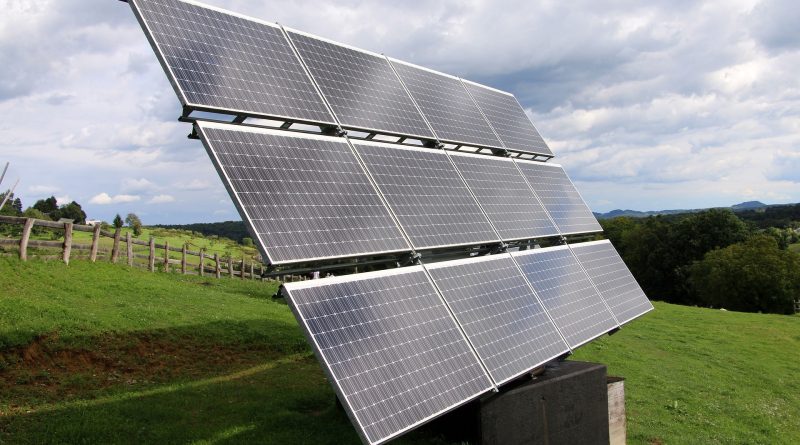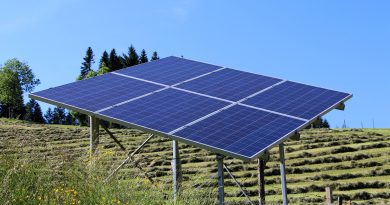Solar Power Plant Setup Cost in Karnataka: Affordable Solutions
The growing concern for sustainable energy sources has led to a surge in the use of solar power across the globe. As a result, many businesses and individuals are considering investing in solar power plants to meet their energy needs while reducing their carbon footprint. One such state in India that has shown significant growth in the solar sector is Karnataka. In this blog, we will explore the cost of setting up a solar power plant in Karnataka, discussing various factors that determine the expenses involved.
Factors Affecting the Cost
To understand the cost of setting up a solar power plant in Karnataka, it is essential to consider various factors that influence the expenses associated with the installation and operation of the plant. Some key factors include:
1. Plant Size: The size of the solar power plant plays a crucial role in determining the overall cost. Larger solar plants with higher capacity tend to have higher upfront costs due to the higher number of photovoltaic (PV) modules required.
2. Location: The location of the solar power plant is another vital factor affecting costs. Factors such as land availability, accessibility, and proximity to the grid infrastructure can impact the expenses associated with land acquisition, electrical connections, and transmission.
3. Technology: The choice of technology used in the solar power plant significantly affects the cost. Advanced solar technologies like concentrated solar power (CSP) or thin-film panels may have higher upfront costs compared to traditional crystalline silicon PV modules. However, they may provide higher efficiency and long-term cost benefits.
4. Regulatory Framework: The government policies and regulations have a significant impact on the cost of setting up a solar power plant. Incentives, subsidies, and tax benefits provided by the Karnataka government can help reduce the overall cost and make solar power more financially viable.
5. Infrastructure: The existing infrastructure plays a crucial role in determining the cost of setting up a solar power plant. Adequate electrical infrastructure for power evacuation, including transformers, transmission lines, and substations, is essential and can add to the overall expenses.
Cost Breakdown
Now let’s delve deeper into the various cost components involved in setting up a solar power plant in Karnataka:
1. Land: Land acquisition is a significant expense in setting up a solar power plant. The cost of land may vary depending on the location, proximity to the grid, and availability of suitable sites. It is advisable to choose a location near existing infrastructure to minimize transmission and distribution costs.
2. Module Costs: The cost of solar modules, primarily comprised of PV panels, constitutes a significant portion of the overall investment. The price of modules varies depending on the type (monocrystalline, polycrystalline, or thin-film), efficiency, and brand.
3. Mounting Structures: Mounting structures provide the structural support for the solar panels. The cost of mounting structures depends on various factors such as design, material used, wind load capacity, and the angle of inclination. High-quality structures ensure durability and longevity of the solar installation.
4. Balance of System (BoS) Components: BoS components include inverters, cables, switches, meters, and other electrical equipment that facilitate the operation of the solar power plant. The quality and capacity of these components impact system efficiency and overall cost.
5. Installation and Labor: The cost of labor for installation, including engineering, procurement, and construction, plays a crucial role in determining the overall expenses. Skilled labor is essential to ensure the proper and safe installation of the solar power plant.
6. Auxiliary Equipment: Auxiliary equipment such as transformers, batteries, and storage systems may be required based on the project specifications. These additional components contribute to the overall cost of the solar power plant.
Cost Range and Financial Viability
The cost of setting up a solar power plant in Karnataka can vary depending on the factors mentioned above. As a rough estimate, the cost can range from INR 4 crores to INR 6 crores per MW of installed capacity. However, it is essential to note that government policies, subsidies, and incentives offered can significantly impact the financial viability of the project.
The Karnataka government has been actively promoting solar power by providing various incentives such as exemption from electricity duty, reduced transmission and distribution charges, and net metering facilities. These initiatives aim to reduce the payback period and make solar power a financially lucrative option for investors.
Conclusion
Embark on a journey toward affordable clean energy with SolarClue®—your trusted guide for solar power plants in Karnataka. Understand the cost-effective advantages and environmental impact of adopting solar energy. Assess factors influencing setup costs, optimize your solar plant with expert assistance, and choose the right capacity for your needs. SolarClue® helps navigate financing options, subsidies, and incentives specific to Karnataka, ensuring affordability. Obtain permits smoothly, learn maintenance insights, and stay informed about local market trends for maximizing returns. Join our community, share experiences, and transition to cleaner, sustainable energy with SolarClue®. Start your solar journey in Karnataka today!
Frequently Asked Questions
SolarClue® helps businesses and individuals in Karnataka understand the cost-effective advantages and environmental impact of adopting solar energy, emphasizing reduced electricity costs, sustainability, and long-term savings.
SolarClue® assists stakeholders by explaining factors influencing the cost of setting up a solar power plant, helping them assess and optimize these factors for an affordable and efficient solution.
SolarClue® guides businesses and individuals in Karnataka in choosing the right solar power plant by considering energy needs, providing a customized solution that fits their budget, and promotes clean energy adoption.
SolarClue® provides resources to help stakeholders in Karnataka explore financing options, subsidies, and incentives, making their solar power plant investment more affordable and financially viable.
SolarClue® assists stakeholders in Karnataka by providing information on the process of obtaining permits and approvals, helping them navigate the regulatory landscape for a smooth and compliant solar power plant installation.
SolarClue® offers insights into maintenance requirements for solar power plants, educating stakeholders in Karnataka on caring for their installations for long-term efficiency and affordability.
SolarClue® supports stakeholders in Karnataka by providing information on local solar energy market trends, enabling them to make informed decisions for maximizing returns on their solar power plant investment.
SolarClue® provides information on potential energy savings and ROI, assisting stakeholders in Karnataka with calculations and strategies to maximize the benefits of investing in solar power plants.
SolarClue® fosters a community where stakeholders in Karnataka share experiences with solar power plants, creating a supportive space for learning, troubleshooting, and advice to enhance the overall clean energy transition.
SolarClue® provides additional tips and best practices to stakeholders in Karnataka, ensuring they make well-informed decisions and optimize their solar power plant investments for maximum affordability, efficiency, and sustainability.




